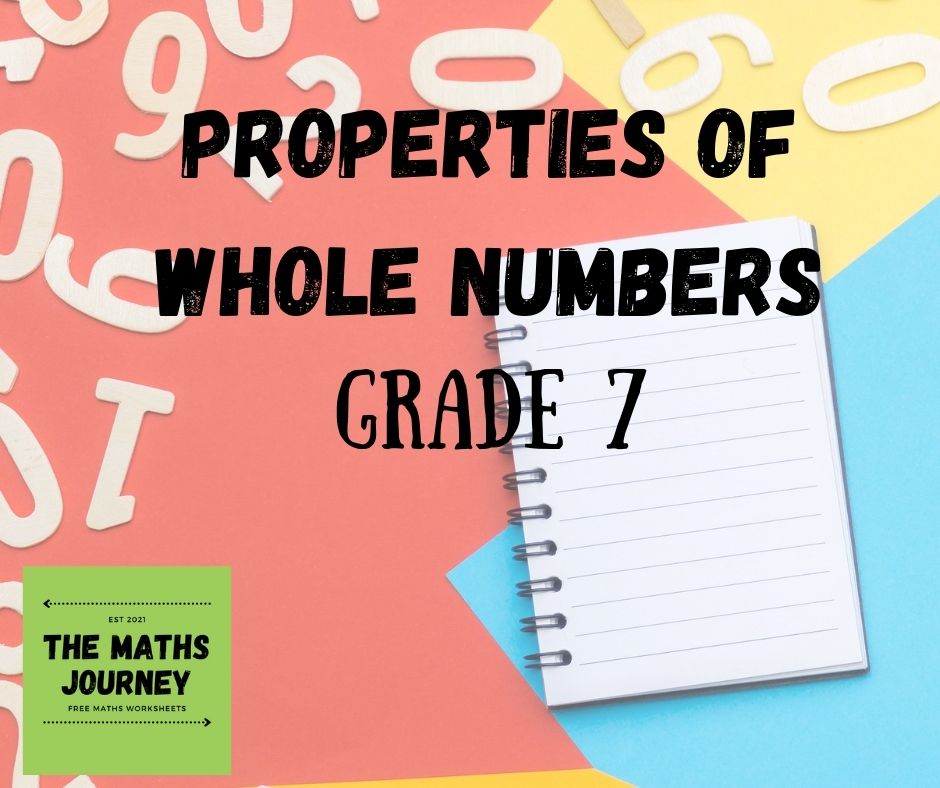This worksheet on properties of whole numbers for grade 7 maths students (based on the South African CAPS curriculum term 1) looks at the following:
- commutative property
- This means that when you rearrange multiplication and addition sums the order of the numbers doesn't matter.
- Please note that this does not work for subtraction and division.
- in variables we can say that a + b = b + a or that a x b = b x a
- associative property
- This means that when you have addition and multiplication and brackets (or grouping) you can reaarange the order and the answer will still be the same.
- Please note that this does not work for subtraction and division.
- In variables we can say that (a + b) + c = a + (b + c) or that (a x b) x c = a x (b x c)
- distributive property
- This means that when you are multiplying into brackets the outside multiplier multiplies everything in the brackets. It is distributed out to all the elements in the brackets.
- For example a x (b - c) = a x b - a x c
- Zero (0) is the identity element for addition
- This means that if you add zero to any number the number will remain the same.
- And finally, one (1) is the identity element for multiplication.
- This means that when you multiply any number by 1 the answer will be that same number. In other words, multiplying by one does not "change" the number.
